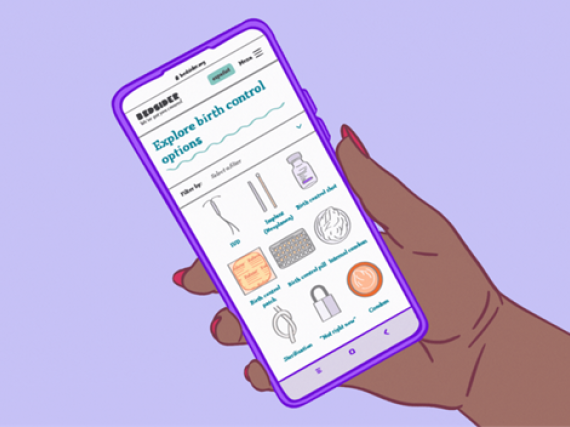Navigating Conversations with Teens
If you have a teenager you probably know it well: you used to have a child that would never stop talking and now everything is “fine” and “okay” and you wonder what’s going on in their lives. Although there are many things that teens are thinking about and experiencing that they do not want to share with their parents, one thing that many teens do want to talk about is birth control.
How do I know this? I run an app called okayso. We are part of Power to Decide’s Innovation Next program and we provide a safe place for teens to ask questions about sex and mental health. We’ve answered over 7,000 questions from young people across the United States on a huge range of topics from healthy relationships to stress to STIs. But one of the most common things young people ask about is birth control.
Teens have a lot of questions about birth control. They want to protect themselves from pregnancy, but they often lack basic information about how it works, available methods, and how to get it. And, they do want to talk to their parents about it, but they are terrified. They assume (rightly or wrongly) that their parents will not be supportive and decide that figuring it out for themselves is a better option than sharing.
If a teen feels like their parents might be supportive, then we help them figure out how to bring it up in a way that will have the best chance of success. Difficult conversations are hard! As adults, we’re often not very good at having them, so we coach teens on what to do.
- Step one: Decide what they want to say. Instead of blurting it out, we encourage teens to think about why they’re bringing this up and how to best communicate that.
- Step two: Pick a good time and place. We help young people think through when their parents are most able to listen. If everyone is too tired at night or too rushed in the morning, what about a weekend afternoon? A soccer game, probably not a great place. A long’ish car ride? Might be perfect.
- Step three: Set the stage. We remind teens to start the conversation by saying they have something important to discuss. Sometimes teens forget that we aren’t mind readers - they need to get our attention by letting us know we really need to tune in to what they’re saying. And, it gives us time to emotionally prepare for whatever they’re about to say.
- Step four: Say their piece and let their parent(s) have their reaction. It’s unreasonable to assume that anyone can take in a piece of information this big and just roll with it. Although it’s old news to the teen, we help them remember that it might take their parent a bit to adjust.
What if you’re a supportive parent? How can you let your teen know that they can talk to you about birth control? To really open up the space you can:
- Be blunt: Just come right out and say, “if you ever need birth control, I will help”. You might get an “omg, stop!” reaction, but I guarantee you they will hear it.
- Share: Talk about your own experiences with birth control.
- Show: If you support organizations that provide birth control, be vocal about your beliefs.
- Provide: Make sure your teen knows where to go for information. I love Bedsider (another program of Power to Decide) for all things birth control and Scarleteen for general information. okayso is also a great resource, of course - they’ll get personalized answers to all of their questions from trained and vetted experts.
As you navigate these conversations with your teen remember that as hard as it might seem, it’s not about you. If you’re having trouble starting the conversation, you’re in luck because October is Let’s Talk Month and you can get tons of tips on how to talk to your teen here. No matter what, remember to take deep breaths and focus on what your teen feels and needs in that moment. If you can respond taking that into account, you will be on the right track.
Elise Schuster is a sex educator, trainer, and youth developer and is the founder of okayso (https://okayso.app), a free app that connects people with questions about sex to experts who provide personalized answers.



